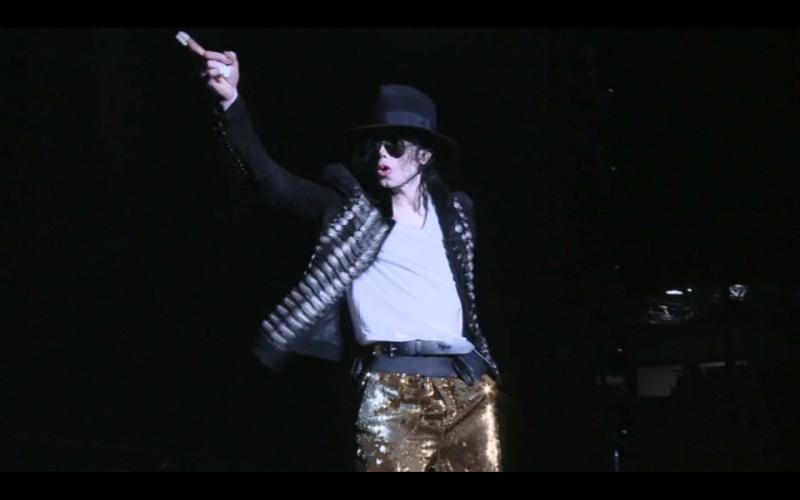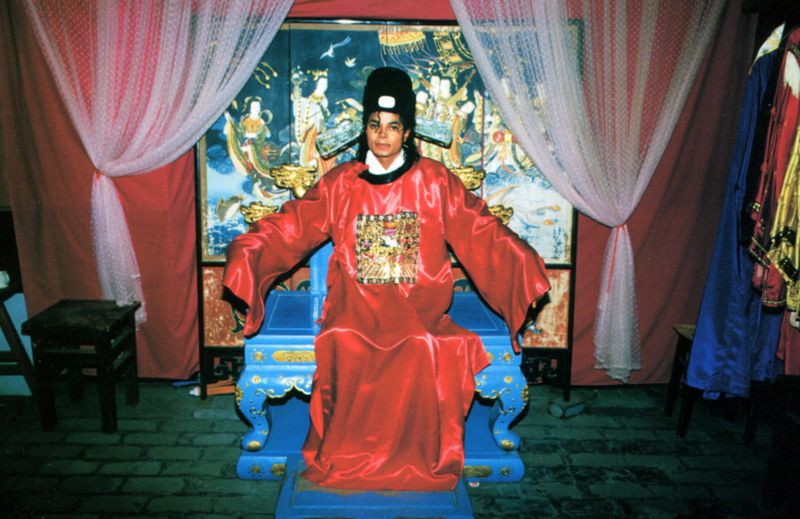|
|

楼主 |
发表于 2010-12-10 09:31:45
|
显示全部楼层
本帖最后由 alextoalex 于 2010-12-9 20:32 编辑
Part 4 : How Jackson Snagged His Prized Possession: the Beatles Songs
Forty-eight million in cash would get Michael Jackson only so far in his bid to possess a musical crown jewel.
The coup a quarter-century ago that would hand him ownership of the Beatles catalogue -- one of the 20th century’s greatest bodies of songs -- relied heavily on an invaluable intangible: superlawyer John Branca’s guile and chutzpah.
Today, Branca effectively controls Jackson’s estate -- potentially the richest ever for a celebrity -- in which the Beatles catalogue is the shiniest object.
In 1985, the Branca-engineered Beatles purchase would radically redefine the dimensions of Jackson’s legend. In a few years of adulthood and relative freedom from his family’s shadow, he towered as a creative force as evidenced by the historic “Thriller,” the worldwide “Bad Tour,” his illusionary “moonwalk” and the iconographic studded glove.
Possessing the Beatles, however, revealed that Jackson’s business instincts rivaled his remarkable artistry.
Why the Beatles didn’t own their catalogue in the first place was unfortunate. Seeking to thwart the British tax collector, John Lennon and Paul McCartney in the 1960s formed Northern Songs, a public company, as the repository for the songs they wrote. The move backfired in 1969 when impresario Sir Lew Grade bought control of it on the open market through one of his companies, ATV Music. Seventeen years later, Australian Robert Holmes à Court acquired Grade’s crumbling entertainment empire.
And, inevitably, Holmes à Court, a notable among the era’s unsentimental raiders and plunderers of corporations, would put all or parts of it, including the Beatles, on the auction block.
In September 1984, Branca alerted Jackson, mentioning that ATV, a name the entertainer didn’t even recognize, was available. “It includes a few things you might be interested in,” Branca had teased Jackson, according to a 1985 report in the Los Angeles Times. “Northern Songs … Yeah, Mike … the Beatles.”
On Nov. 20, the lawyer telexed Holmes à Court, with a $46-million offer and a meeting request.
Garry Stiffelman, a Branca firm partner who handled pivotal details, described the ensuing months of negotiating and jockeying “the long and winding road,” the Times reported. There was the globe-spanning ordeal of verifying the authenticity all 4,000 songs in the catalogue, not just the Beatles' 251.
But mostly, it was the maddening antics of the seller, Holmes à Court, who repeatedly reneged on his word. In all, there were eight drafts of the contract, the Times noted. Holmes
à Court relished his reputation for tough dealing. “The Viet Cong didn't play by the rules, and look what happened," he once told Fortune magazine.
In May 1985, Jackson’s emissaries abandoned talks for about a month. Meanwhile, another bidder suddenly emerged -- the team of Martin Bandier (now CEO of Sony/ATV) and Charles Koppelman, a veteran show business executive and investor who’s now chairman of Martha Stewart’s empire.
Their offer: $50 million … about $2 million more than Jackson’s.
Ironically, while Koppelman and Bandier had no idea that the world’s biggest megastar was in the running, Branca had sensitive intelligence on the rivals. He, for example, knew they were backed by MCA Music, then headed by Irving Azoff, now CEO of Live Nation. An old Branca acquaintance, the lawyer had hired Azoff in 1984 to help with the “Victory Tour,” Jackson’s last with his brothers.
So when Bandier and Koppelman thought they had the deal sewed up, Branca called on Azoff to pull his financing.
The two apparently were the last to know they’d been sucker punched. On the flight to London to -- they thought -- seal the deal, they spied Branca in a nearby seat.
“What are you doing in London,” Bandier asked him?
Replied Branca, “Just business.”
* It's the Beatles' Biggest Year Ever
* Apple Finally Gets the Beatles on iTunes
Not until the Bandier and Koppelman met with Holmes à Court, Bandier recalls, did they learn the disappointing news: “He said I’ve made a decision. I’m selling it to Michael Jackson.”
Indeed, Branca had left nothing to chance. The bid, at $47.5 million, was the richest ever paid by an individual for a catalogue, the Los Angeles Times reported. On top of the cash, Branca threw in a Jackson benefit concert for Holmes à Court’s favorite charity and pledged a lifetime of income from the Beatles’ classic, “Penny Lane,” to Holmes à Court’s daughter, Penny.
“Brilliant,” Bandier said this summer, recalling Branca’s move. “Charles and I couldn’t do the moonwalk.”
To this day, 25 years later, it’s still evident Branca and his law partners remain sensitive to Paul McCartney’s stinging accusation that his one-time friend Jackson had stabbed him in the back.
“Paul’s representatives were very aware of what was going on,” said Stiffelman, Branca's law partner. “The part that always bothered me was the accusation that Michael stole it from under McCartney.”
Branca also had been careful to seek the blessing of Yoko Ono. She reportedly was thrilled that a corporation wouldn’t own the catalogue and hadn't wanted the headache herself of teaming with McCartney for a joint bid.
When it was all over, Jackson gifted Branca with a Rolls Royce, the first of two he would give him.
So it was that at barely 30 years old in 1990, Jackson now was fabulously wealthy -- worth $300 million, according to biographer J. Randy Taraborrelli, author of "Michael Jackson: The Magic and Madness."
But as the 1990s dawned, a dark chapter of eccentricities, paranoia, debt, lawsuits and scandal loomed.
Stunningly, 10 years later, he would be on the hook to one bank for $300 million, with his Beatles rights at stake and has relationship with Branca having turned into a soap opera. |
|



